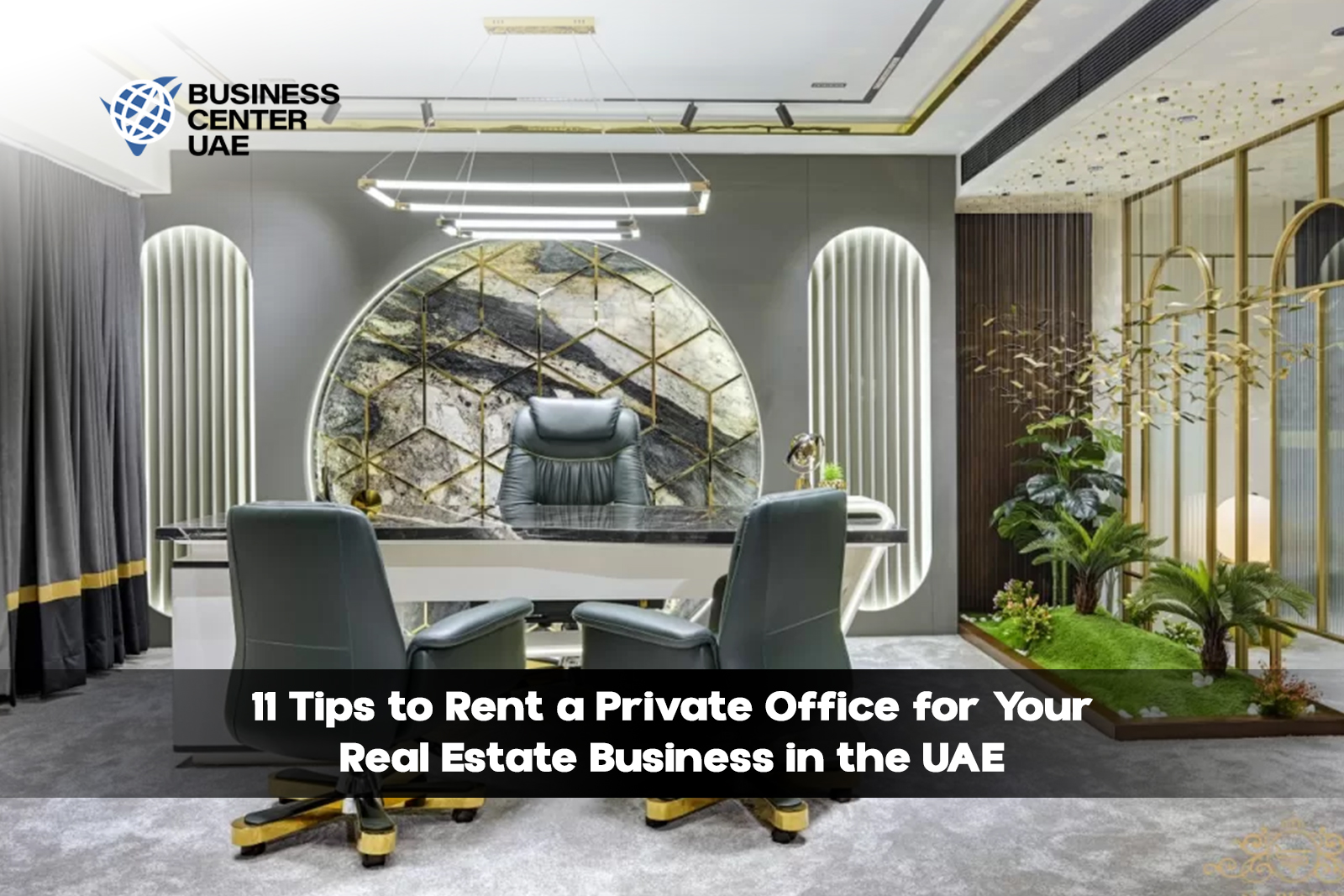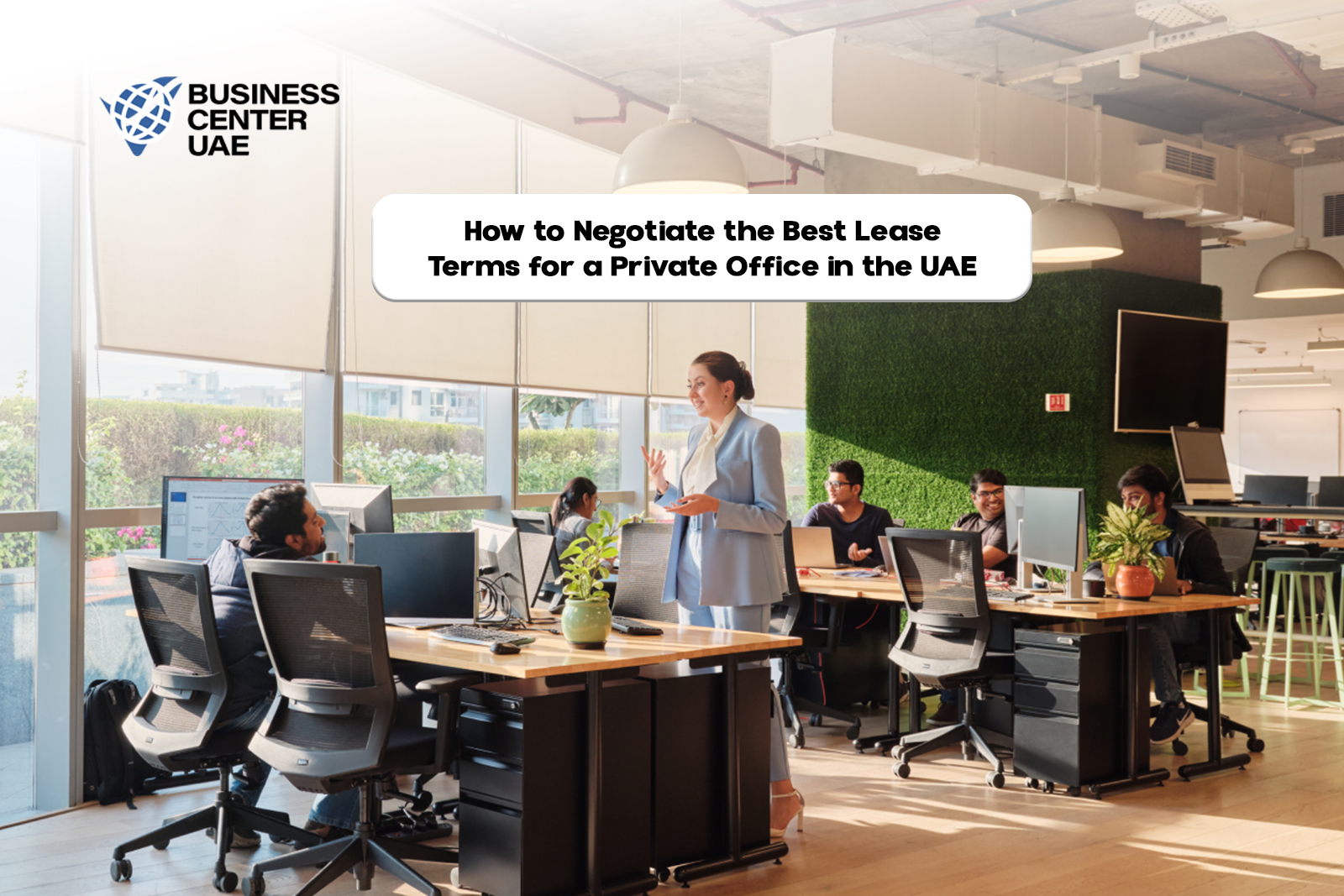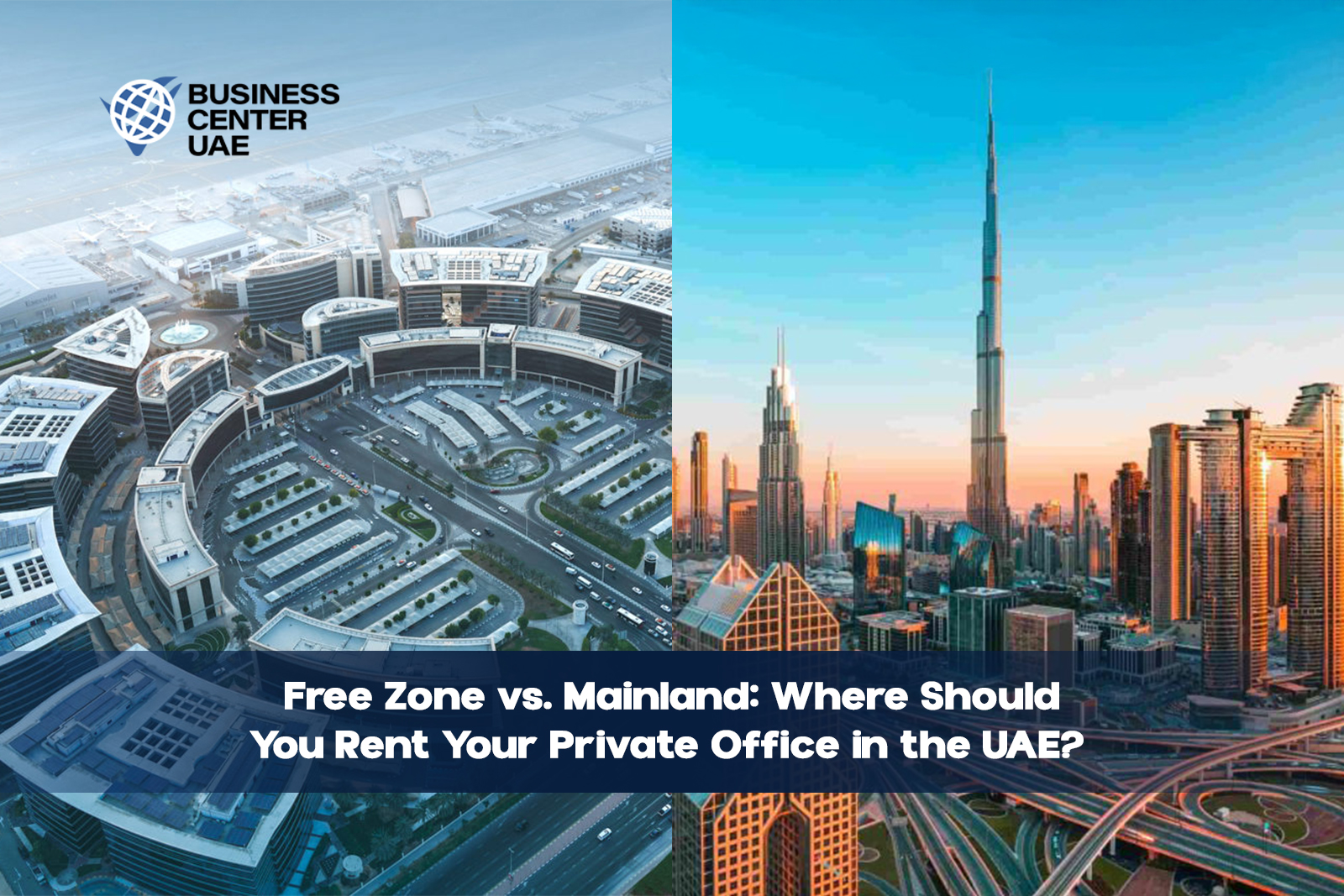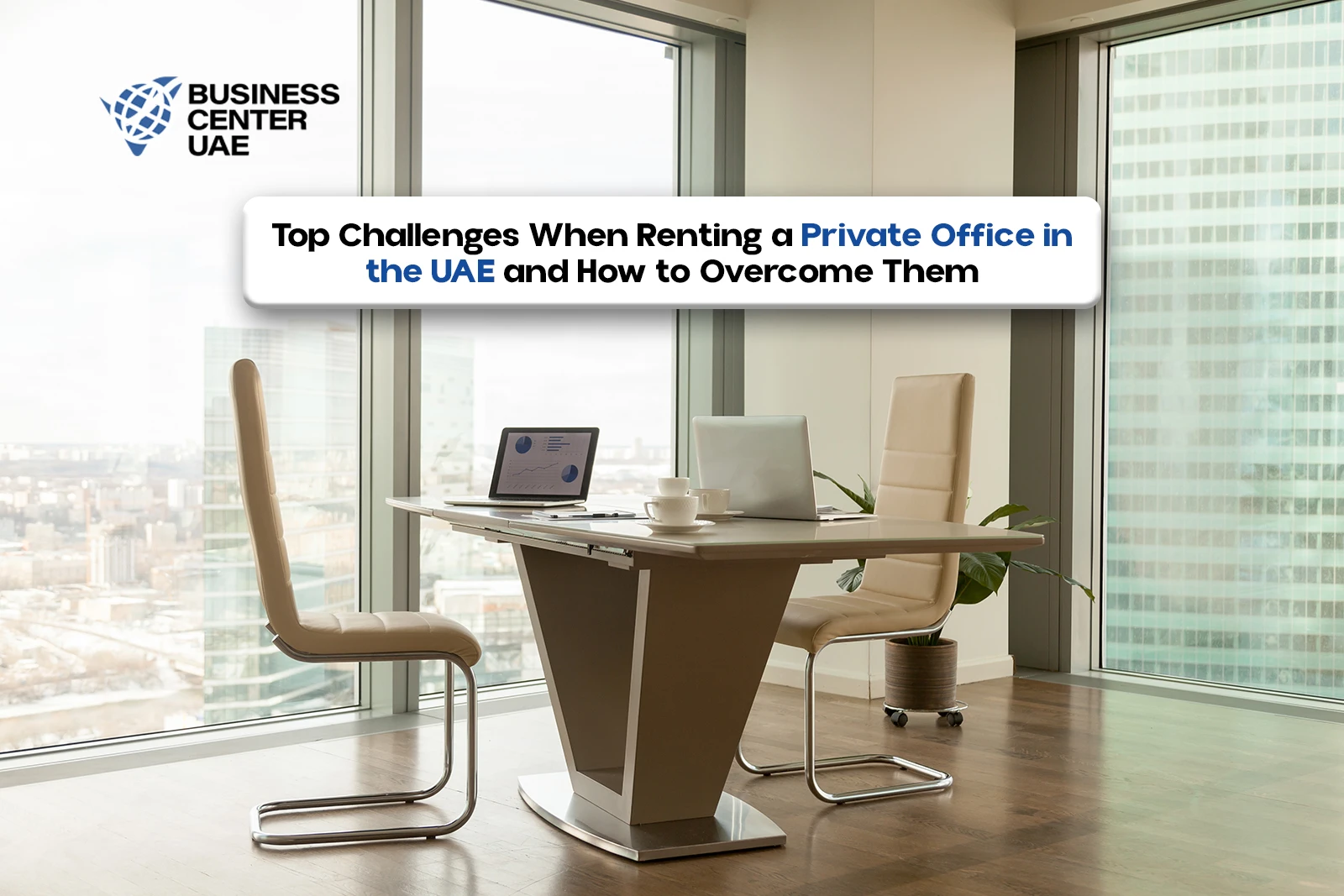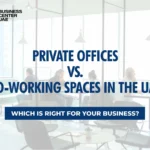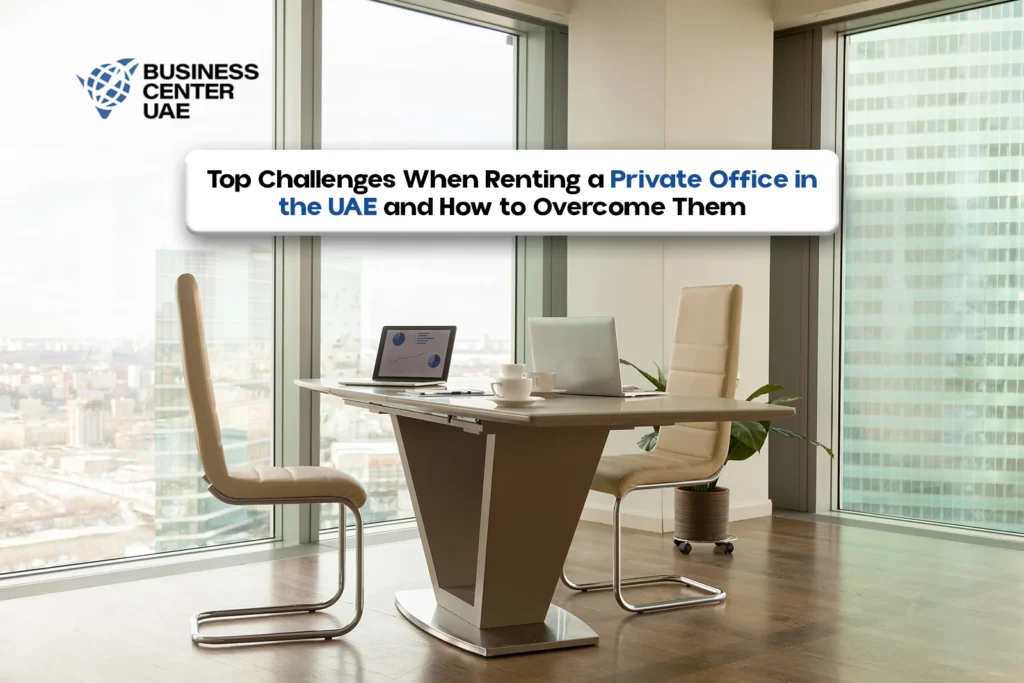
If you see from afar, renting a private office in the UAE sounds like a straightforward process. For most, it’s like finding a workspace, signing a lease, and moving in. That’s it? Not really. It comes with a few hidden speed bumps. Whether you’re setting up in Dubai, Abu Dhabi, or Sharjah, the process can become overwhelming quickly. This guide will walk you through the top challenges when renting private office space in the UAE and offer practical, real-world advice to overcome them, all based on 2025 market updates.
Common Challenges in Renting a Private Office in the UAE
Let’s break down the most common private office rental issues businesses face today.
High Rental Costs in Prime Areas
If you’re looking for an office in Downtown Dubai, DIFC, or Business Bay, be ready for a shock. Problems in renting a private office in the UAE often start with pricing. Premium locations charge premium rates, and this can eat into your startup’s operational budget before you’ve even opened shop.
- 2025 Insight: According to Bayut’s latest report, Grade A offices in Dubai saw a 12–15% rental increase year-on-year due to higher demand and limited availability.
Long-Term Lease Commitments
Many commercial landlords prefer locking tenants into 1–3 year contracts, which can be intimidating for startups or SMEs. These private office lease challenges in the UAE restrict scalability and increase liability.
- You may outgrow your space, or worse, need to downsize, but you’re tied to a long-term contract.
Limited Flexibility
Many offices don’t offer the ability to customise layouts, bring in your own furniture, or upgrade internet connectivity. This is a huge obstacle to renting office space in the UAE when you’re trying to build a brand or improve productivity.
- Businesses today need modular, hybrid-ready spaces, and not cookie-cutter cubicles.
Confusing Legal and Regulatory Landscape
Renting office space in the UAE involves navigating complex regulations, Ejari registration, municipality approvals, and sometimes even zoning issues. Many first-timers face UAE private office rental challenges not because they’re careless, but because the rules are confusing.
- Missing one compliance step can delay your business license issuance.
Lack of Transparency in Lease Agreements
Lease agreements are often lengthy, filled with jargon, and tilted in favour of the landlord. Tenants may face hidden charges, unclear exit clauses, or ambiguous maintenance responsibilities.
- This is one of the top renting office space challenges Dubai entrepreneurs report every year.
Infrastructure and Facility Concerns
Not all offices are created equal. While the brochure may promise 24/7 electricity, high-speed internet, and a modern pantry, it’s not always delivered. Private office rental in the UAE issues related to unreliable Wi-Fi or poor maintenance can severely impact business continuity.
Location Accessibility Issues
Your dream office may be in a buzzing business district, but is it easy for clients and employees to reach? Accessibility challenges, especially in traffic-heavy zones like Sheikh Zayed Road or JLT, are often overlooked.
Parking & Transportation Constraints
Parking is gold in most commercial districts. Many private office buildings provide limited or expensive parking slots. Your team and clients may end up spending more time circling for a space than in meetings.
- This private workspace UAE difficulty hits harder in areas like Deira, Bur Dubai, and Karama.
Compliance & Licensing Barriers
Some private office spaces are not approved by the relevant free zone or mainland authorities for trade license issuance. You may rent a space and later discover it’s not eligible for your licensed activity.
- Always check if the office location is compliant with your licensing authority (DED, DMCC, IFZA, etc.).
Post-COVID Hybrid Model Confusion
With the rise of hybrid work, many businesses don’t need massive private offices, but landlords are slow to adapt. The gap between what tenants want and what’s available is growing.
- As of 2025, demand for flexible, short-term private offices has spiked, but supply is still catching up.
Quick Checklist
| Mistake | Impact | How to Avoid |
| Not checking trade license eligibility | The license may get rejected | Verify with DED/Free Zone before renting |
| Ignoring hidden costs | Unexpected monthly expenses | Ask for a full cost breakdown, including DEWA, parking, etc. |
| Skipping the lease agreement review | Tricky clauses, termination fees | Always get it reviewed by a legal advisor |
| Renting without seeing the office physically | Poor facilities, misleading photos | Visit and inspect in person |
| Overlooking transport & parking accessibility | Team/client inconvenience | Choose metro-connected, parking-friendly areas |
Use this checklist to avoid the most common pitfalls businesses make when renting a private office in Dubai or elsewhere in the UAE.
Practical Solutions: How to Overcome These Challenges
Set a Realistic Budget
Research average rental prices in your desired area. Add a 10–15% buffer for hidden charges (utilities, parking, maintenance).
Negotiate Short-Term Leases
Negotiate 6-month or yearly leases, especially if you’re a startup. Serviced offices and business centres offer more flexibility.
Consult a Business Setup Expert
A consultant can help you verify if the office meets DED or Free Zone compliance before you sign anything.
Choose Fully Furnished, Ready-to-Move Options
This saves time, setup headaches, and lets you focus on business, not furniture.
Read the Fine Print Carefully
Hire a legal advisor to vet lease contracts. Understand break clauses, deposit terms, and service charges.
Check for Parking & Metro Access
Ensure there’s visitor and staff parking, or easy access to public transport, especially in downtown areas.
Test Internet & Power Supply
Visit the office personally. Check for backup power, actual internet speed, and whether IT support is included.
Choose Reputable Providers or Business Centres
Providers like Regus, Servcorp, and local serviced offices in Dubai offer plug-and-play offices without the commitment.
Bonus Tips: What to Look For in a Private Office in 2025
Here’s a checklist to use before signing any lease:
- Trade license approved address
- Flexible lease terms
- Furnished and internet-enabled
- Ample natural lighting
- Backup power supply
- Parking availability
- Metro/bus access nearby
- Transparent rental structure
- Maintenance and security included
- Scope for scaling up/down
Final Thoughts
Renting a private office in the UAE can feel like walking through a minefield, especially for first-time founders or foreign investors. But it doesn’t have to be a nightmare. By understanding the challenges upfront and following expert-backed solutions, you can secure the perfect workspace that grows with your business, not against it.
At Business Centre UAE, we simplify the office rental process for you. Whether you’re a startup seeking flexibility or a growing company looking for a premium address, we offer fully furnished, license-compliant private offices across key locations in the UAE. Our team handles everything from Ejari registration to facility management, so you can focus on growing your business, not chasing paperwork.
Need help navigating the private office rental maze in 2025? We’re just a call away.
FAQs
Q1: What are the biggest challenges in renting a private office in Dubai?
The biggest challenges include high rental costs, long-term leases, limited flexibility, lack of parking, and regulatory confusion.
Q2: Can I rent a private office in Dubai without a long-term lease?
Yes, many serviced office providers offer monthly or quarterly options in 2025. These are ideal for startups or hybrid teams.
Q3: Is it mandatory to have a private office for a business license in the UAE?
It depends on the license. Most mainland businesses require a physical office for trade license approval. Free zones offer flexi-desk or shared office options as alternatives.
Q4: How can I ensure my private office is compliant with my license type?
Consult your business setup expert or licensing authority (e.g., DED, DMCC, IFZA). They’ll confirm if the office location and setup are approved.
Q5: What hidden costs should I watch out for when renting private offices in the UAE?
Look out for service charges, DEWA (utility) bills, maintenance costs, parking fees, and upfront deposits.
Q6: What if I need to exit my lease early?
Always check the lease for a break clause. Some landlords charge penalties or require 2–3 months’ notice before early termination.



